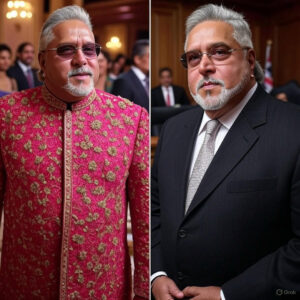Science of Happiness When it comes to happiness, there’s an age-old debate: do possessions or experiences make us happier? While a shiny new gadget or an elegant piece of jewelry might bring immediate joy, studies suggest that the happiness derived from experiences tends to be deeper and longer-lasting happiness. This article explores the psychology and science behind why experiences often lead to greater happiness, offering practical insights for those looking to prioritize experiences over material things.
Table of Contents
ToggleResearch Highlights
Studies by Dr. Thomas Gilovich and Others
Dr. Thomas Gilovich, a psychology professor at Cornell University, has spent decades studying the relationship between money and happiness. His findings reveal that people are significantly happier when they spend money on experiences rather than material goods. Why? Experiences become a part of our identity, whereas possessions remain separate from us. Other researchers have echoed this, highlighting that experiential purchases lead to more satisfaction over time.
Biological Aspects: Dopamine Release from Anticipation and Memory
Anticipating an experience can be just as rewarding as the experience itself. Studies show that the brain’s reward system releases dopamine—the “happiness hormone”—when we anticipate and later reflect on positive experiences. This biological response explains why planning a vacation or reminiscing about a memorable outing can boost our mood.
Key Points
Happiness Adaptation Curve for Possessions vs. Experiences
One of the key concepts in understanding why experiences bring more happiness than possessions is the happiness adaptation curve. When we acquire a new possession, we experience a spike in happiness, but this joy diminishes as we become accustomed to the item. This phenomenon is known as hedonic adaptation. In contrast, experiences tend to provide a more sustained level of happiness. The joy from experiences often increases over time as we recall and share these moments with others.
Experiences as Identity-Builders
Experiences play a crucial role in shaping our identities. They contribute to our personal growth, help us build social connections, and create lasting happiness. Unlike material possessions, which can be lost or become obsolete, experiences become a part of who we are. They enrich our lives by providing stories to tell, lessons learned, and a sense of accomplishment.
Examples of Happiness Experiences
Happiness experiences can vary widely depending on individual preferences and circumstances. Here are some common examples:

- Traveling: Exploring new places, cultures, and cuisines can create lasting memories and broaden your perspective.
- Spending Time with Loved Ones: Whether it’s a family gathering, a day out with friends, or a quiet evening with a partner, these moments can be deeply fulfilling.
- Engaging in Hobbies: Activities like painting, gardening, playing a musical instrument, or sports can bring joy and a sense of accomplishment.
- Learning Something New: Taking a class, learning a new language, or picking up a new skill can be exciting and rewarding.
- Volunteering: Helping others can provide a sense of purpose and connection.
- Attending Events: Concerts, theater performances, sports events, and festivals can be exhilarating and memorable.
- Nature Experiences: Hiking, camping, or simply spending time in a park can be refreshing and grounding.
- Celebrating Milestones: Birthdays, anniversaries, and other significant events can be joyous occasions to remember.
How to Create More Meaningful Experiences
Creating meaningful experiences involves intentionality and mindfulness. Here are some tips to help you cultivate more meaningful moments:
- Be Present: Focus on the moment and fully engage with your surroundings and the people you are with. Avoid distractions like phones or other devices.
- Plan Ahead: While spontaneity can be wonderful, planning certain activities can ensure they are well-organized and enjoyable.
- Set Goals: Having clear goals for what you want to achieve or experience can make your activities more purposeful.
- Reflect and Savor: Take time to reflect on your experiences and savor the positive emotions they bring. Journaling or discussing them with others can enhance their impact.
- Share with Others: Sharing experiences with friends or family can deepen your connections and make the moments more memorable.
- Seek Novelty: Trying new things can keep life exciting and help you grow. Step out of your comfort zone and explore new activities or places.
- Practice Gratitude: Regularly expressing gratitude for your experiences can increase your overall happiness and appreciation for life.
- Create Traditions: Establishing traditions, whether they are daily, weekly, or annual, can provide a sense of continuity and anticipation.
By focusing on these strategies, you can create a life rich with meaningful and joyful experiences. What kind of experiences are you looking forward to creating?
Call to Action: Reflect on Your Happiest Memories
Reflecting on your happiest memories can be a powerful exercise in understanding the value of experiences. Think about the moments that brought you the most joy—whether it’s a family vacation, a concert, or a simple day spent with loved ones. These experiences likely stand out more than any material possession. By prioritizing experiences over possessions, you can cultivate a deeper sense of happiness and fulfilment.
While possessions may offer momentary pleasure, experiences create lasting happiness and meaningful connections. They enrich our lives by shaping our identity, building memories, and fostering relationships. Choose experiences over material possessions and see how your happiness blossoms.
Your Challenge: Plan one micro-experience in the next 48 hours. Notice how it feels to prioritize doing over having.

Jugaad on Two Wheels: The Hilarious Bike Parcel Hack in Karnataka
The Great Karnataka Bike Parcel Hack: A Jugaad Masterclass #RapidoParcel: In a creative yet controversial move, ride-hailing platform Rapido has found a way around Karnataka’s

Denmark’s Digital Sovereignty Revolution: Linux and LibreOffice Lead the Way
Introduction to Denmark’s Bold Move In June 2025, Denmark’s Ministry of Digital Affairs made headlines by embracing digital sovereignty, ditching Microsoft Windows and Office 365

🏏Sports as a Business Strategy: Insights from Vijay Mallya’s RCB Ownership
🧠 Sports as a Business Strategy (Tool) In modern business, few platforms offer better engagement and emotional connection than sports. From football clubs in Europe

🙏 Apologies in Leadership: Vijay Mallya Public Apology
🧠 Introduction: The Role of Apologies in Leadership In the corporate world, apologies aren’t signs of weakness—they’re strategic acts of leadership. When made with sincerity

Audiobook Production Costs: Navigating Recording Artists, Studio Expenses, and AI’s Impact
The audiobook industry is booming, with over 130 million listeners in the U.S. alone in 2021 and a growing global appetite for audio content. Producing

Media Trial of Vijay Mallya: How Public Perception Shaped Vijay Mallya’s Legacy
Introduction: Media’s Influence on Business Narratives In today’s hyper-connected world, media narratives can make or break a business reputation. For Vijay Mallya, once known as


1 thought on “The Science of Happiness: Why Experiences Bring Joy”